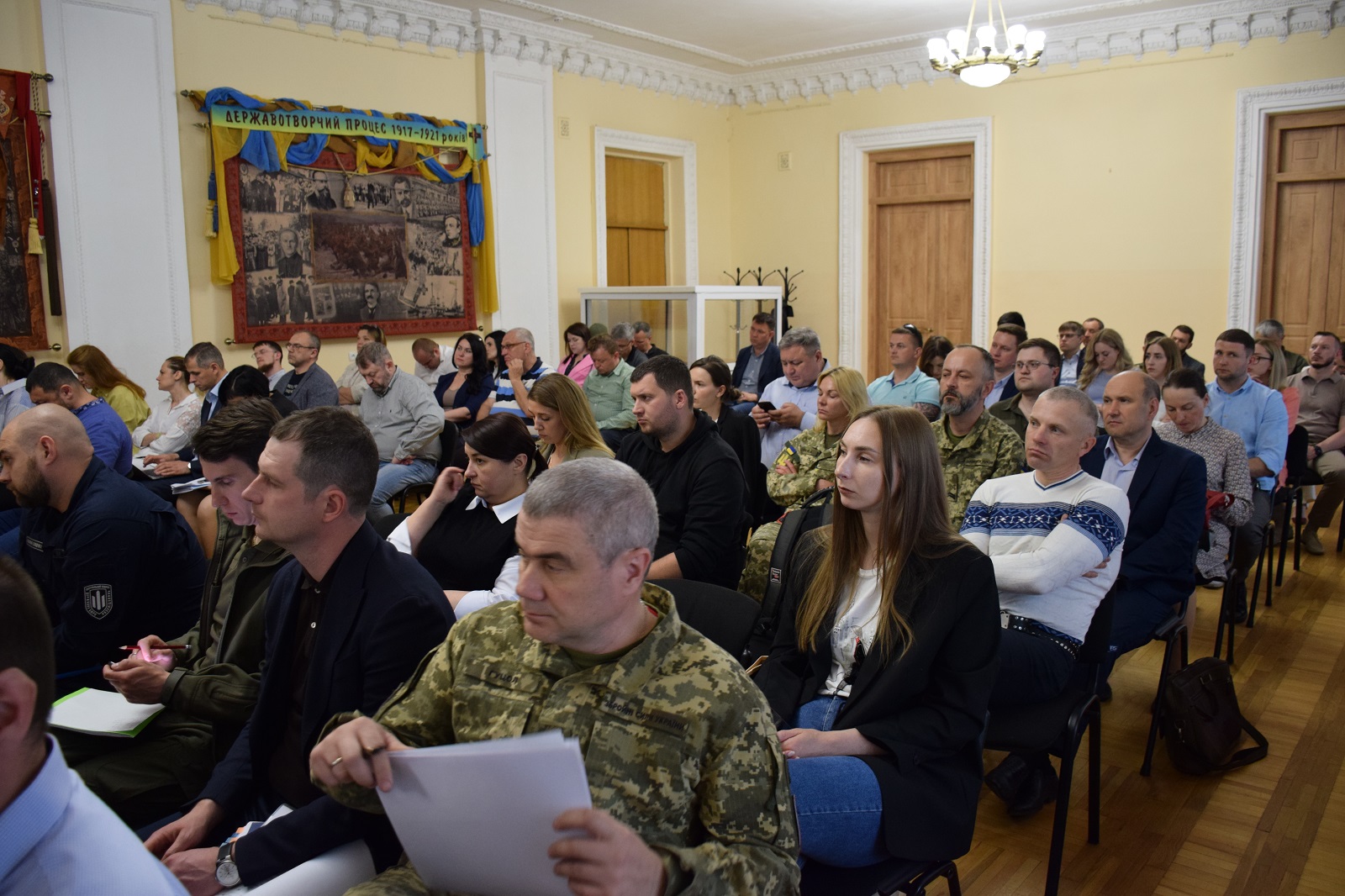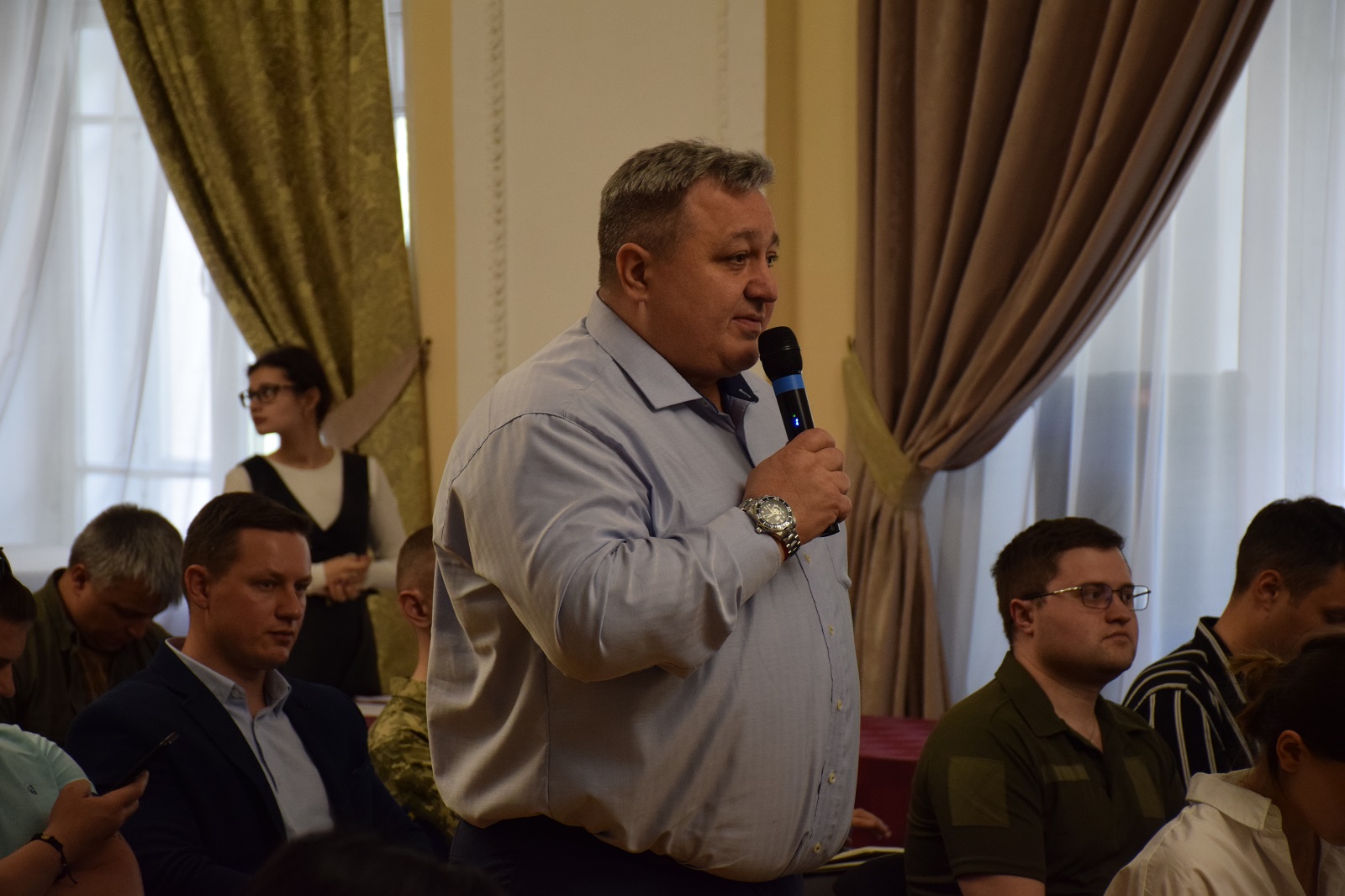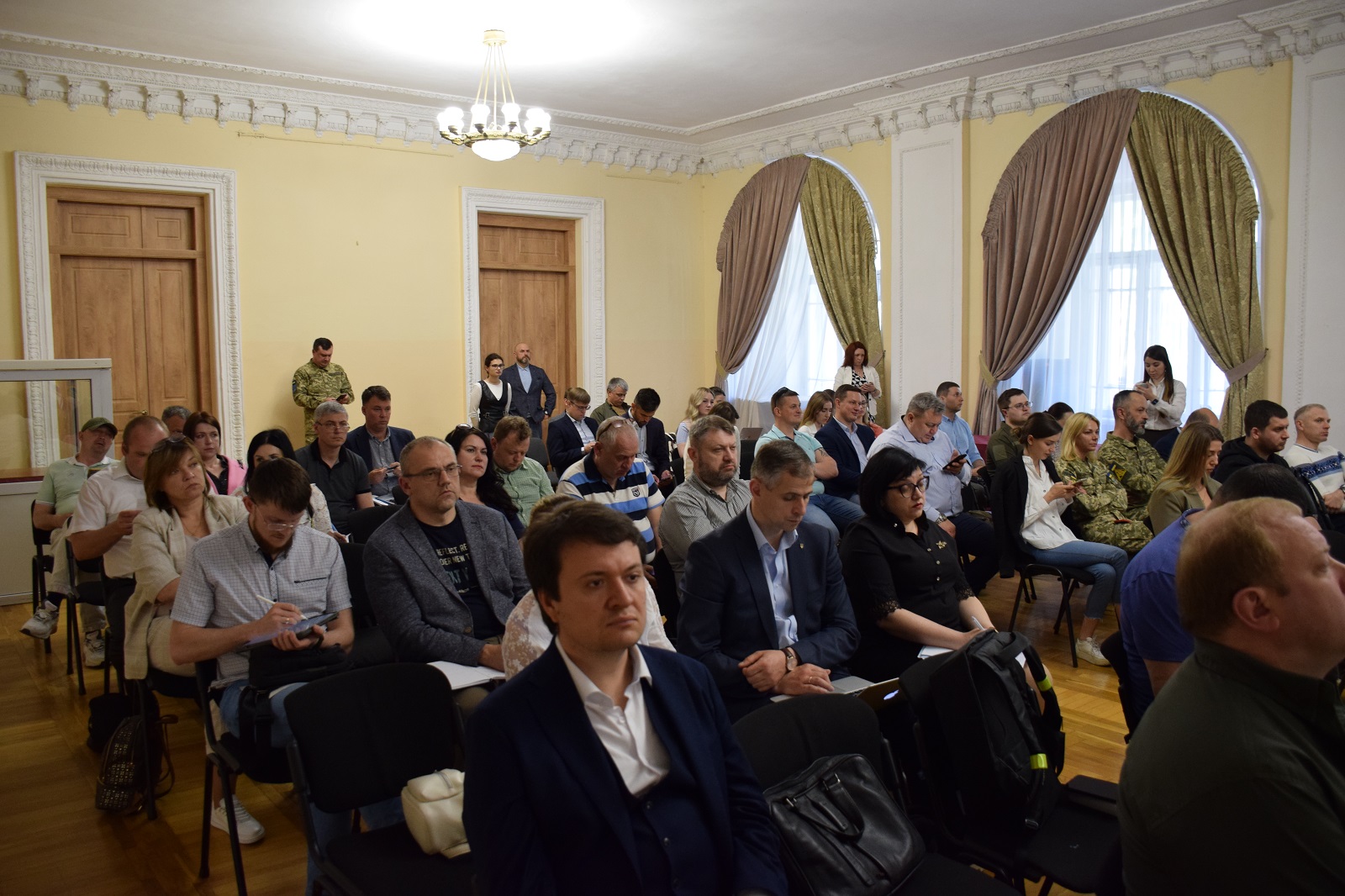UBA and the Ministry of Defense held the Conference "Ensuring Law and Order in the Ukrainian Armed Forces"
Problems related to the investigation of military crimes and disciplinary violations of soldiers, as well as the nuances of court proceedings for these categories of offenses were discussed by the participants of the conference "Ensuring Law and Order in the Ukrainian Armed Forces", which the Ukrainian Bar Association (UBA) jointly with the Ministry of Defense of Ukraine (Department of Legal Support of the Ministry of Defense) held on May 23, 2023 in Kyiv.
At the beginning of the event, Andriy Shevchenko, Deputy Minister of Defense of Ukraine for European Integration, addressed the audience with a welcome speech. He emphasized that war cannot be an excuse for violating human rights, so Ukraine needs to build a system of law and order and justice in the Ukrainian Armed Forces (UAF).
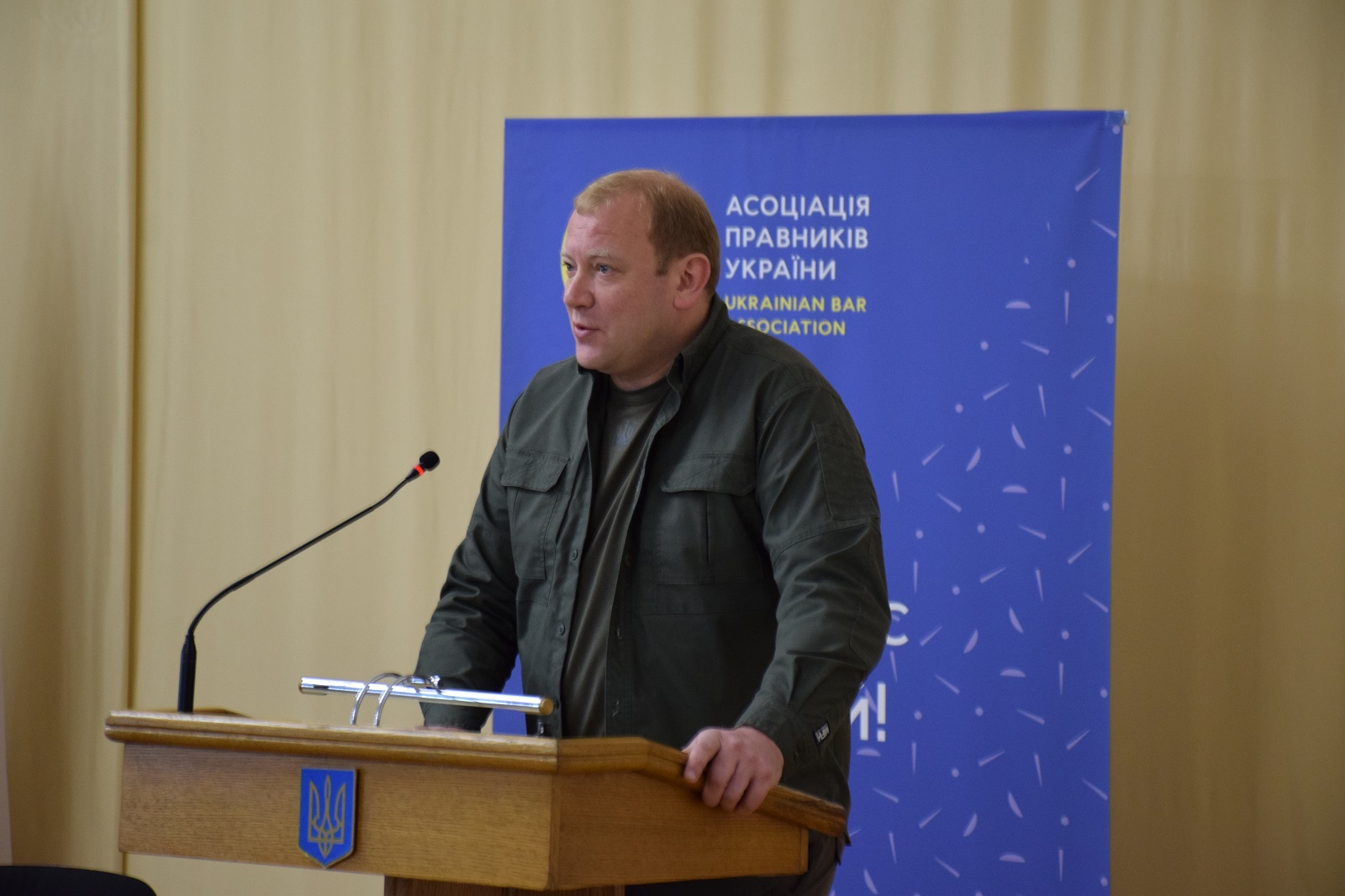
"We look at the issue of compliance with military discipline as synonymous with the execution of a combat mission. That is why the Ministry of Defense pays so much attention to the development of military justice, the creation of military police on the basis of the Military Law and Order Service," Andrii Shevchenko noted, adding that the creation of military police is one of the steps on Ukraine's path to NATO standards.
Anton Voytenko, Deputy Prosecutor General of Ukraine, noted that the state should certainly rely on international experience when it comes to creating a military justice system, but it is much more difficult to do so in the conditions of a full-scale war. According to him, the war revealed a number of problematic issues, in particular for the prosecutor's office.
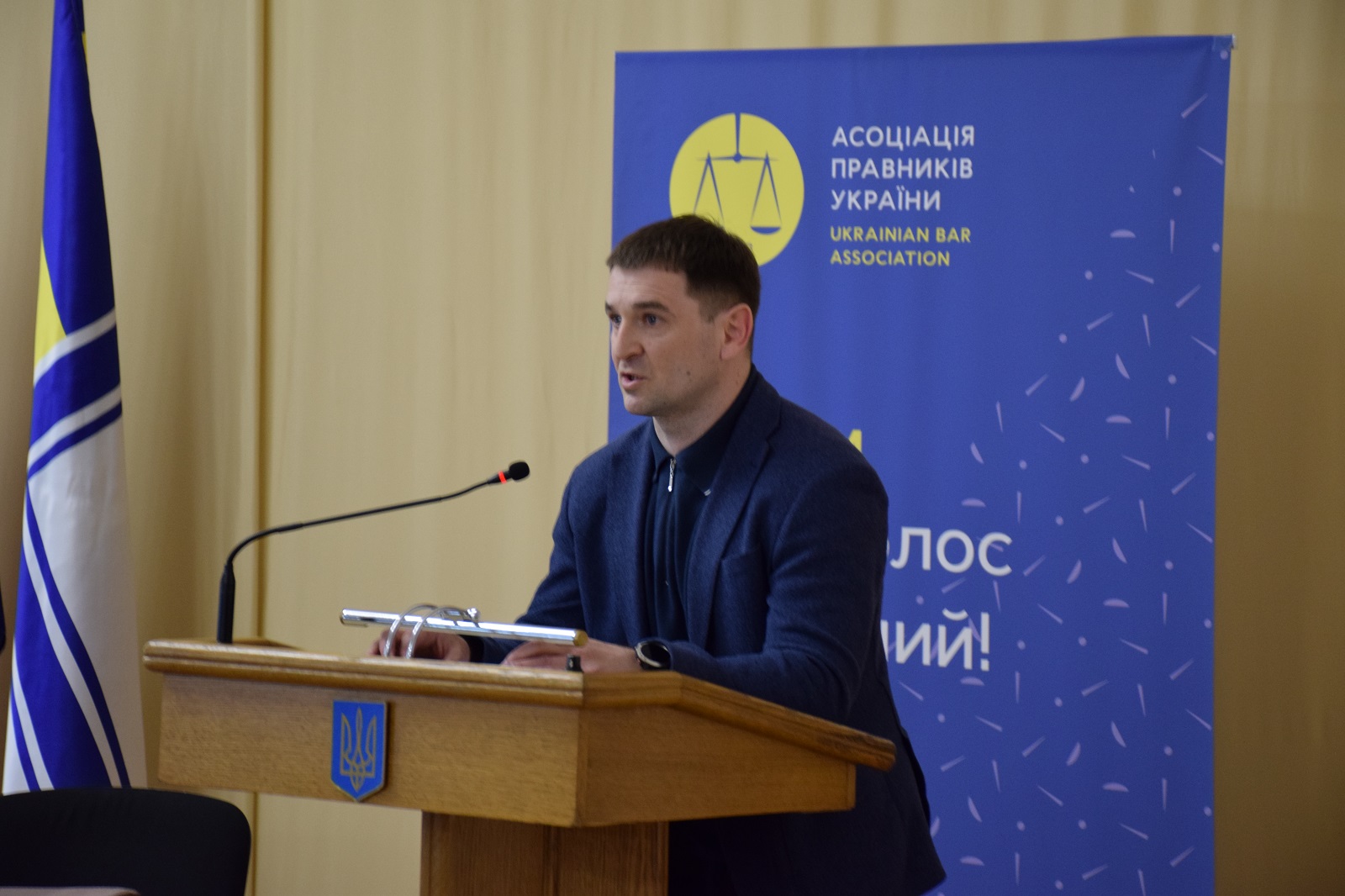
At the same time, Mr. Voytenko emphasized, the Prosecutor General's Office now has a roadmap — the Comprehensive Strategic Plan for the Reform of Law Enforcement Bodies as a Part of the Security and Defense Sector of Ukraine for 2023-2027, which provides common guidelines for law enforcement agencies and the prosecutor's office.
Anna Ogrenchuk, President of the Ukrainian Bar Association, said that in the first days of the full-scale Russian invasion, the UBA organized a Hotline to help victims of aggression.
"We kept track of which issues were placed where the volunteers took on them. At first, of course, these were questions about crossing the border, mobilization, recording war crimes, but later the number of questions and requests from military personnel increased. And today they constitute one of the largest blocks of issues," Anna Ogrenchuk noted.
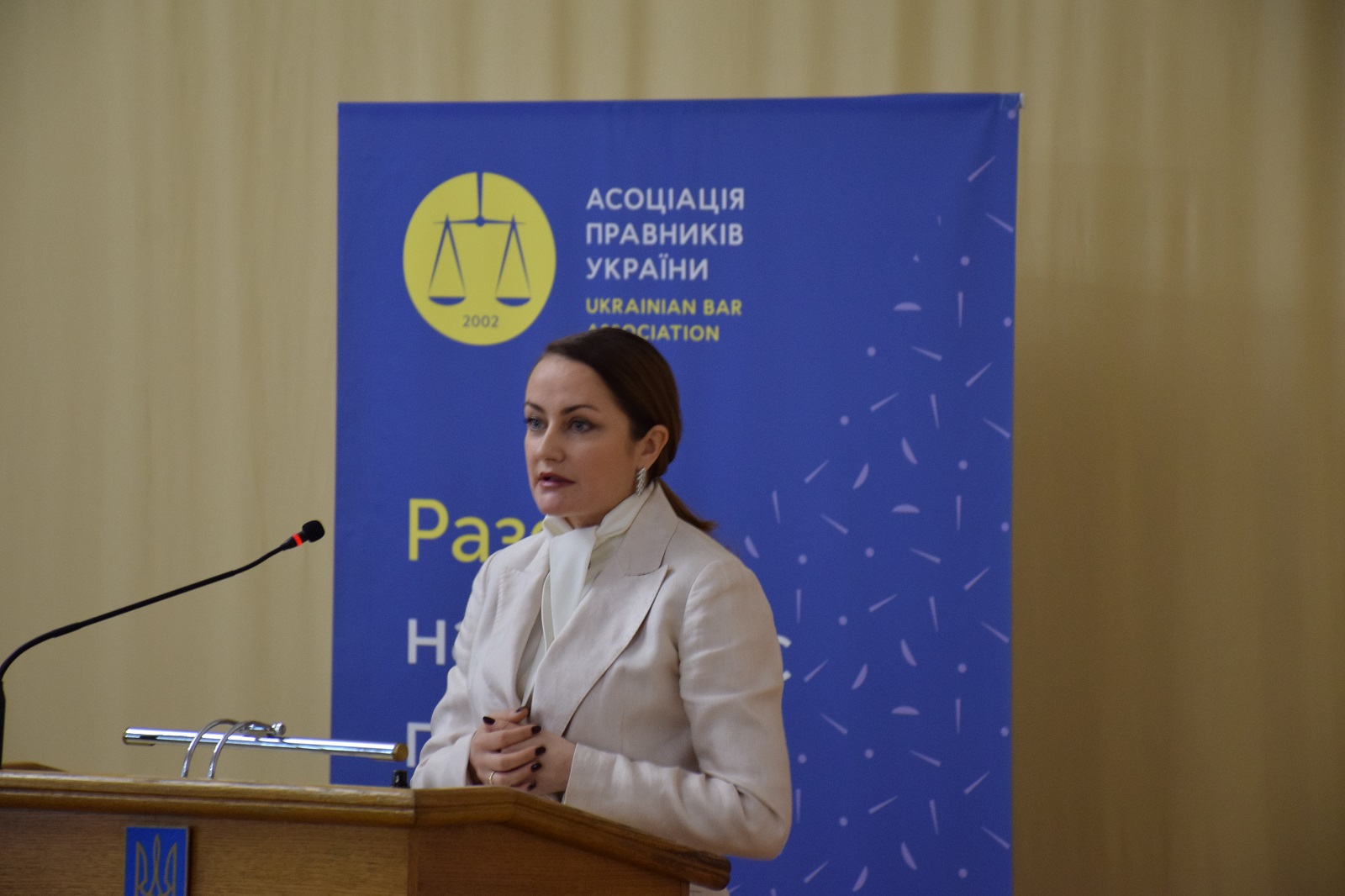
In view of this, added the UBA President, the Association signed a memorandum with the Ministry of Defense (MoD) regarding the involvement of international experts in matters of investigation, pre-trial proceedings and defense. Anna Ogrenchuk also reminded that the UBA has already created a Committee on the Protection of the Rights of Soldiers and Veterans, which is open to cooperation.
The topic of the first panel was the specifics of war crimes trials and improving the institutional capacity of courts. Stanislav Kravchenko — at the time the Chairman of the Criminal Court of Cassation as part of the Supreme Court of Ukraine, and now the Chairman of the Supreme Court — told that from the first days of the Russian full-scale invasion it became obvious that in the conditions that had developed and with the challenges that had arisen, it was necessary there was a different organization of work of the judicial branch and a different approach to many problems.

Mr. Kravchenko cited the statistics of criminal proceedings regarding offenses committed by military personnel, which were brought to the courts as of May 22, 2023:
- resisting the commander or forcing him to violate official duties — 117 proceedings;
- threat or violence against the commander — 131;
- violation of the statutory rules of relations between military personnel — 52;
- voluntary abandonment of a military unit or place of service — 2958;
- desertion — 307;
- loss of military equipment — 111.
Stanislav Kravchenko also spoke about the problems of considering cases in courts that, as a result of hostilities, ended up in the temporarily occupied territory and were later moved to the territory under the control of the Ukrainian government, and in courts located in front-line areas.
The second panel discussion was devoted to strengthening military discipline and law and order in the UAF. The discussion was moderated by Oleksiy Muravyov, Head of the Northern Territorial Legal Department.
Volodymyr Hutsol, Head of the UAF Military Law and Order Service (MLOS), brigadier general, emphasized that the state of law and order and military discipline in the Ukrainian army is controlled and allows for the fulfillment of tasks as assigned.
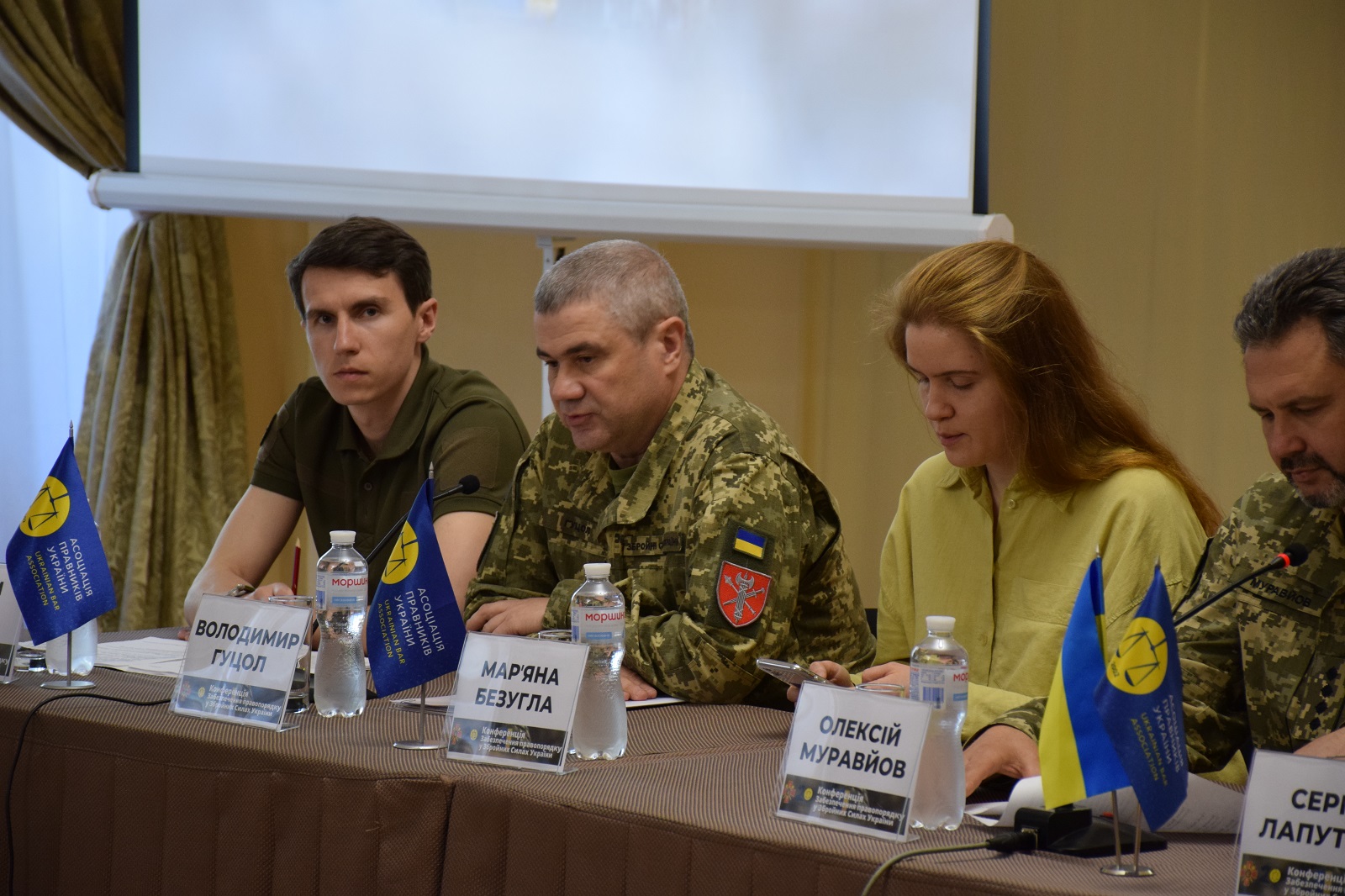
According to Mr. Hutsol, Russia's full-scale aggression forced to adjust the organization of the work of military law enforcement agencies.
"Certain mechanisms and measures were developed that made it possible to maintain the state of law and order and discipline in the UAF at the level that really allowed them to perform their assigned tasks. Those approaches that were in place before the start of the war, in particular, crime prevention, have remained stable," he emphasized.
As Volodymyr Hutsol reported, at the beginning of the armed aggression of the Russian Federation and in the first half of 2022, the level of crime in the UAF was minimal, but in the second half it began to rise. He explained that these changes are primarily related to crimes such as voluntarily leaving the battlefield, disobedience during hostilities, and disobeying an order.
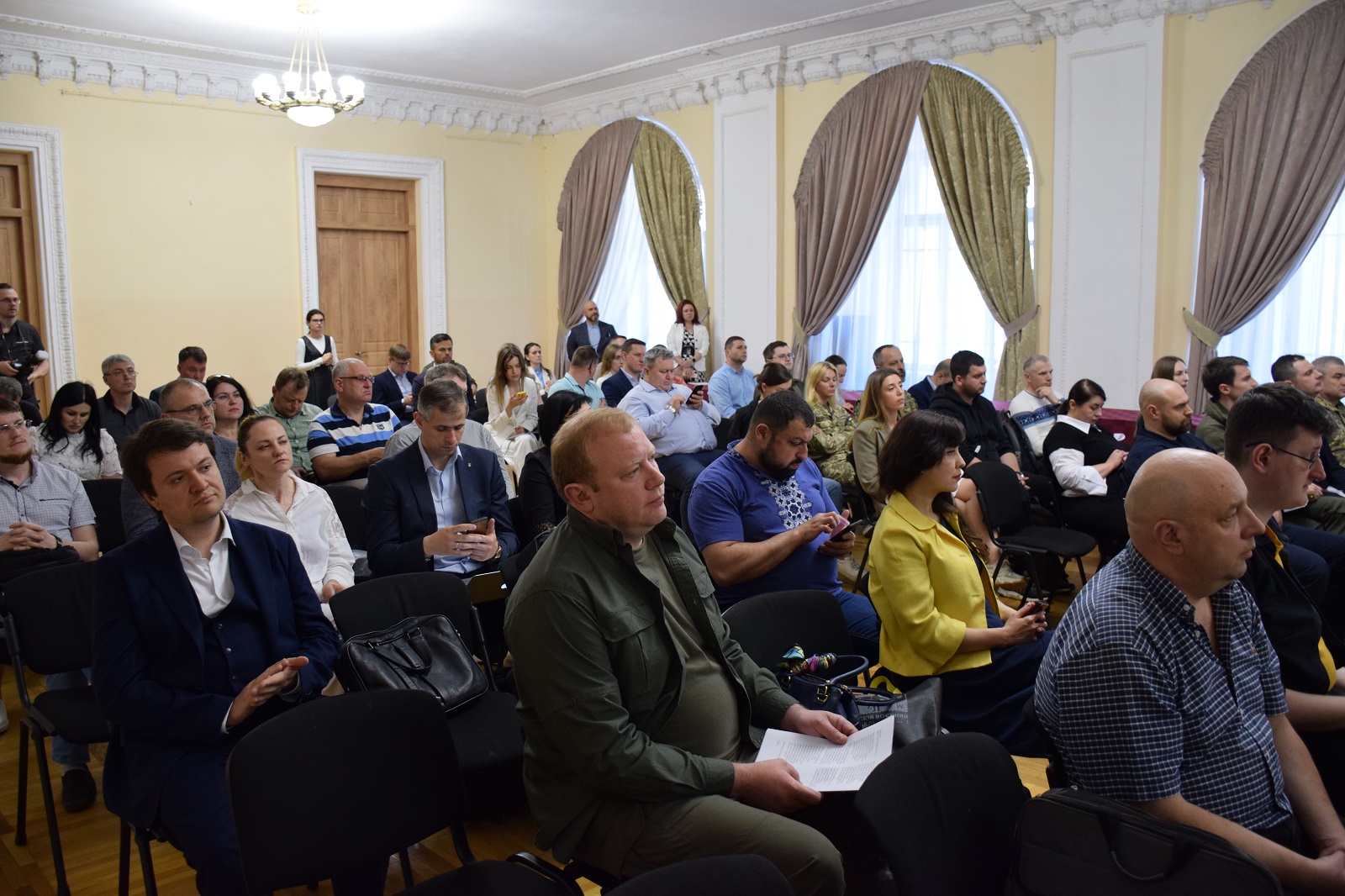
Mr. Hutsol focused on the key problem in the UAF — the alcohol and drug consumption among soldiers.
"This problem exists, we are fighting it and taking measures. All efforts are aimed at ensuring that alcohol, psychotropic substances and drugs do not come to military units," he summarized.
Maryana Bezugla, People's Deputy of Ukraine, Deputy Chairman of the Verkhovna Rada Committee on National Security, Defense and Intelligence, reminded that the Russian invasion of Ukraine has been ongoing since 2014, and the military courts and military prosecutor's office have been abolished in the country, and there are no military police.
"I have a natural question: was it a sabotage (intra-organizational, legislative, etc.) to reduce the country's defense capability?... We are finally coming to an understanding of what needs to be returned, and what should even be "jumped over" in our development," she emphasized.
Mrs. Bezugla added that the parliament is already finalizing work on the draft law on the military police, but the issue of military courts and the powers of the Specialized Prosecutor's Office, in particular military prosecutors, remains open.
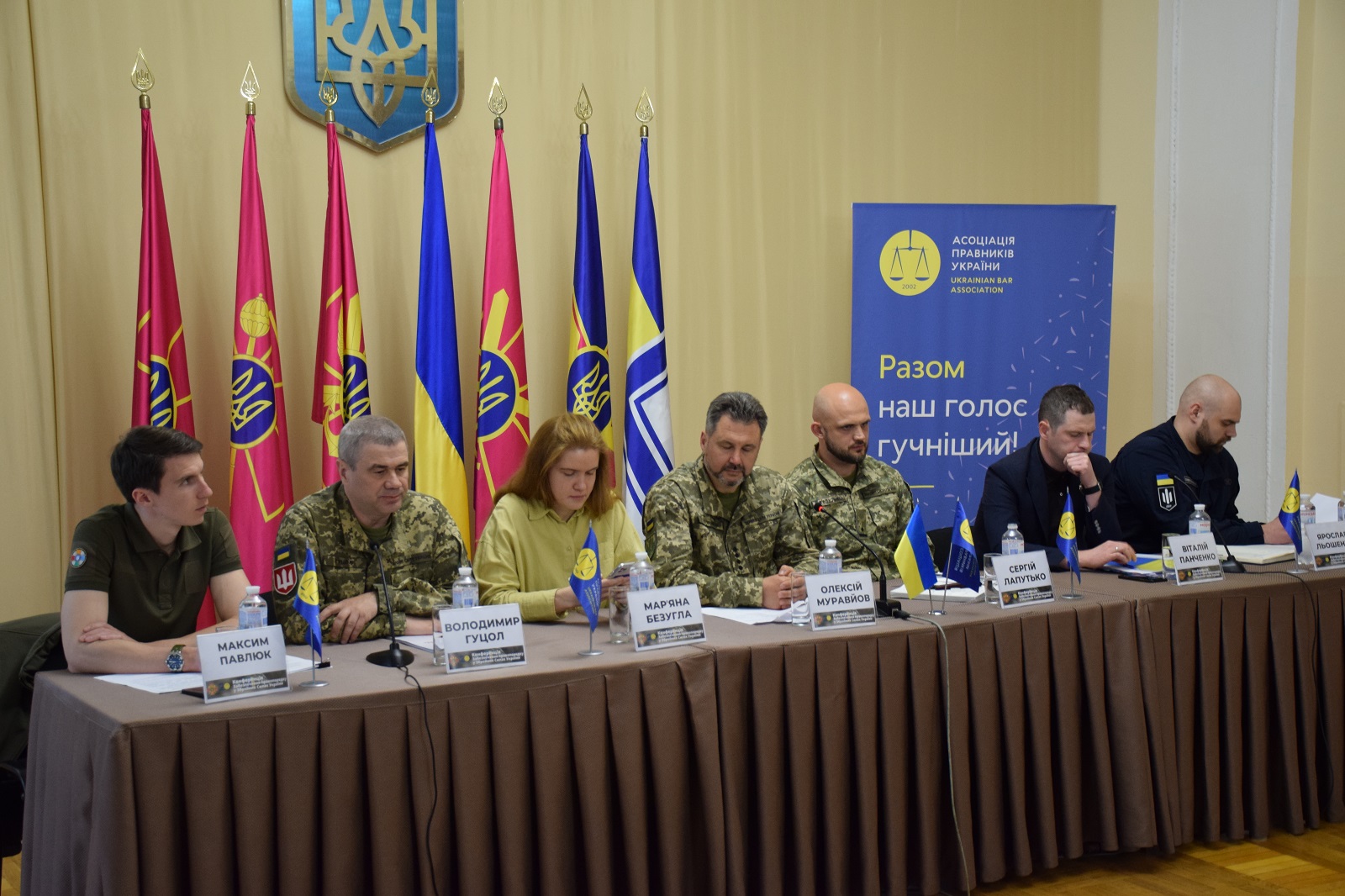
Yaroslav Lyoshenko, Head of the Third Department of the Office of the Main Investigative Department of the State Bureau of Investigation (SBI), said that the SBI unquestionably supports the initiative to establish the military police.
"We understand that these military police, which, according to the intention of our legislators, should take place on the basis of the MLOS, is a fairly balanced and correct decision that meets the requirements of today," he emphasized.
Mr. Lyoshenko also noted that against the background of Russian aggression, Ukraine should not only unify approaches, but also not be afraid to use new methods of investigation, in particular military crimes.
Vitaliy Panchenko, Head of the Specialized Prosecutor's Office in the field of defense of the Prosecutor General's Office, in his turn, emphasized the problem of searching for servicemen, noting that now there is another urgent direction — identifying servicemen who have deserted or voluntarily left the battlefield. According to him, in particular, it is necessary to investigate the question of whether the fight actually took place, in which expert research can help, and such things require time and, perhaps, additional research.
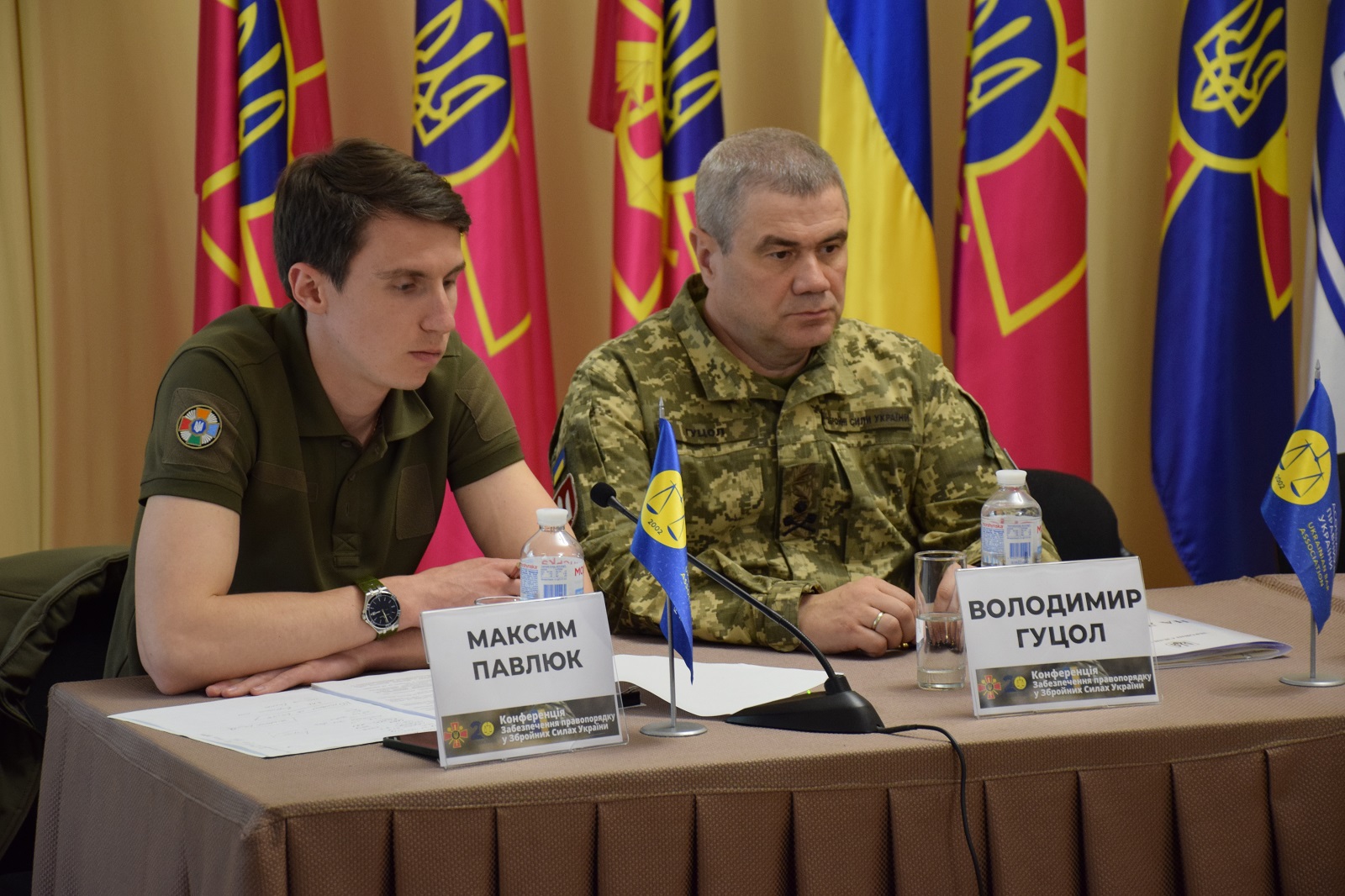
Maksym Pavlyuk, People's Deputy of Ukraine, Deputy Chairman of the Verkhovna Rada Committee on Law Enforcement, spoke about the problem of the number of judges, their financial support and the speed of launching the entire system that would deal with war crimes. He said that in the working group parliamentarians are discussing the launch of special trial chambers for war crimes, and possibly also for war crimes.
At the same time, Serhiy Laputko, assistant to the Minister of Defense of Ukraine, said that it remains unclear to him how the representatives of the military prosecutor's office assess the quality of the pre-trial investigation of war crimes. He added that the military is "shouting" about the need to create the military police.
The third panel concerned the international experience of ensuring law and order in military formations. The discussion was moderated by Inna Zavorotko, senior officer of the Northern Territorial Legal Department.
Taras Ivanets, a legal adviser from Lithuania, who spoke online, emphasized that military police exist in almost all countries of the world. According to him, in Lithuania, the military police is a military force responsible for the authority to ensure the control of compliance with the law and discipline, providing support to military operations during the performance of the functions outlined in the doctrine.
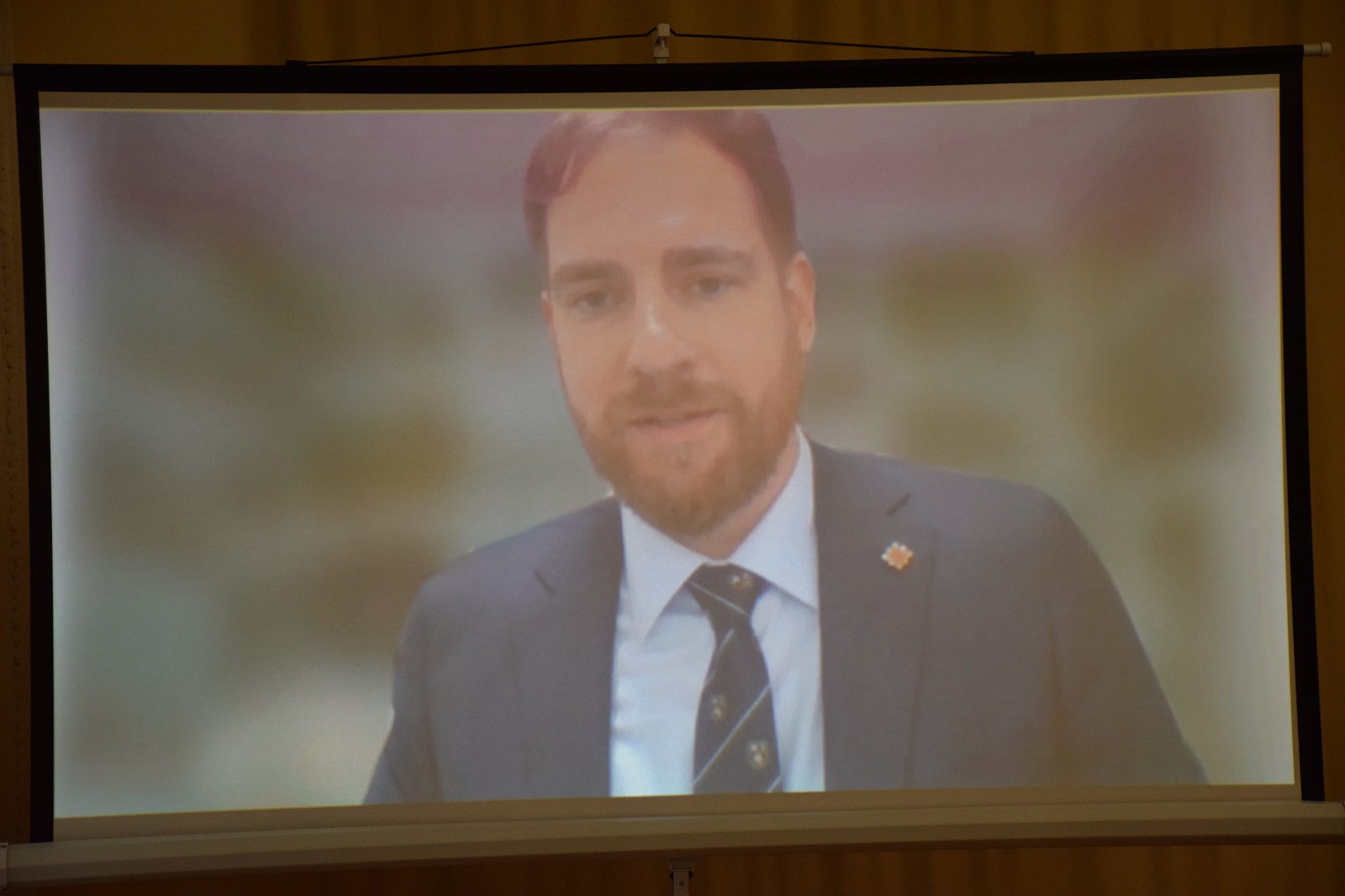
Mr. Ivanets added that, according to the NATO doctrine, the military police have five main directions, of which Ukraine performs quite successfully all but one — law enforcement activities, i.e. the police function.
Christina Cherneutje, project manager of Geneva Centre for Security Sector Governance (DCAF), emphasized in her online speech that it is very important to create a military justice system that would ensure accountability and justice.
"If we talk about international standards for the investigation of war crimes, they include such principles as independence, transparency and due process. Of course, these investigations should be carried out by competent and impartial authorities, which are separate from subordination or any undue influence," she said.
The topic of the fourth panel discussion was the Ukrainian soldiers’ right to defence, namely the current state of affairs and the next steps in this direction. The discussion was moderated by Yevhen Hrushovets, an advocate, partner at Ario Law Firm, Chairman of the Public Anti-Corruption Council under the MoD.
"For me personally, as an advocate who practices criminal proceedings, the topic of the right to protect the Ukrainian military is at least difficult. This topic is very deep and multifaceted, because when we talk about defense, we are talking, accordingly, about the other side, which is the question of the soldiers’ responsibility," he said.
Oleksiy Bezhevets, an officer of the Northern Territorial Legal Department, spoke about the requests his department receives from lawyers and military personnel, and emphasized that many of them relate to AWOL.
"Far from all servicemen who voluntarily left the unit are unequivocally thieves and scoundrels who do not want to serve. The world is complicated, there are different situations," he noted.
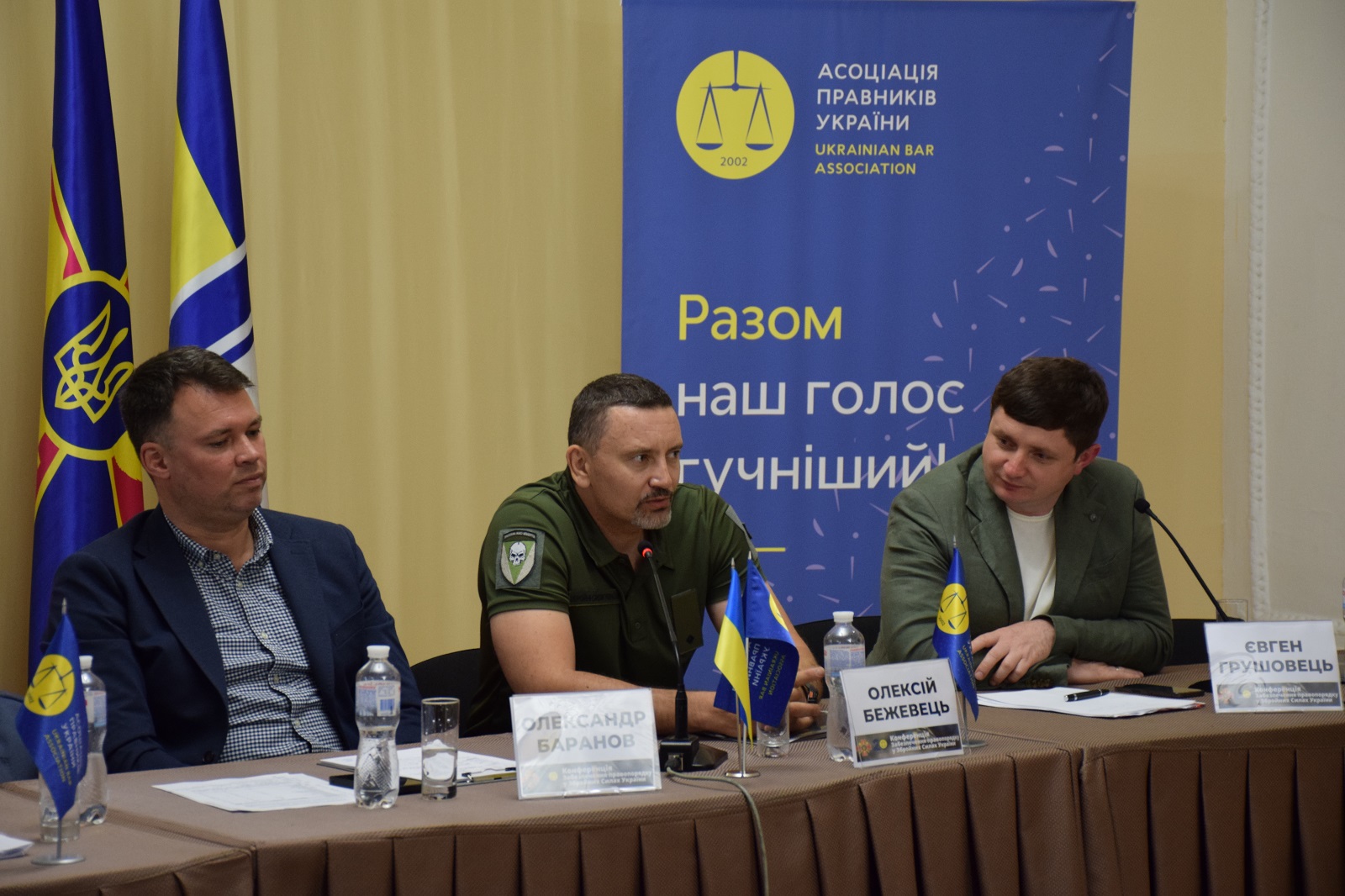
Oleksandr Baranov, Director of the Coordination Centre for Legal Aid Provision, said that the body detaining a soldier must notify the free legal assistance center, after which an advocate must arrive at the detainee within two hours.
"Since the beginning of this year, we have issued 588 instructions to lawyers to protect clients," he added.
Mr. Baranov expressed the opinion that it is necessary to train lawyers so that they can defend clients suspected of quite specific types of crimes, because not all lawyers have relevant practice.
Lesya Klyarovska, a lawyer and Head of the NGO "Juridychna Sotnia" Board, said that from February 24, 2022 to May 19, 2023, her NGO processed 44,697 appeals, of which:
- 37,520 — provided consultations on the "hotline";
- 71,177 — provided written consultations through social media and messengers;
- 290 — contacts of volunteer lawyers were provided or sent to centers of free secondary legal assistance for further resolution of the case.
Ms. Klyarovska added that 565 appeals were received by the NGO regarding criminal proceedings, most of which related to the refusal to execute a combat order (29.3%), AWOL (16.9%) and requests for advocates (7.6%).
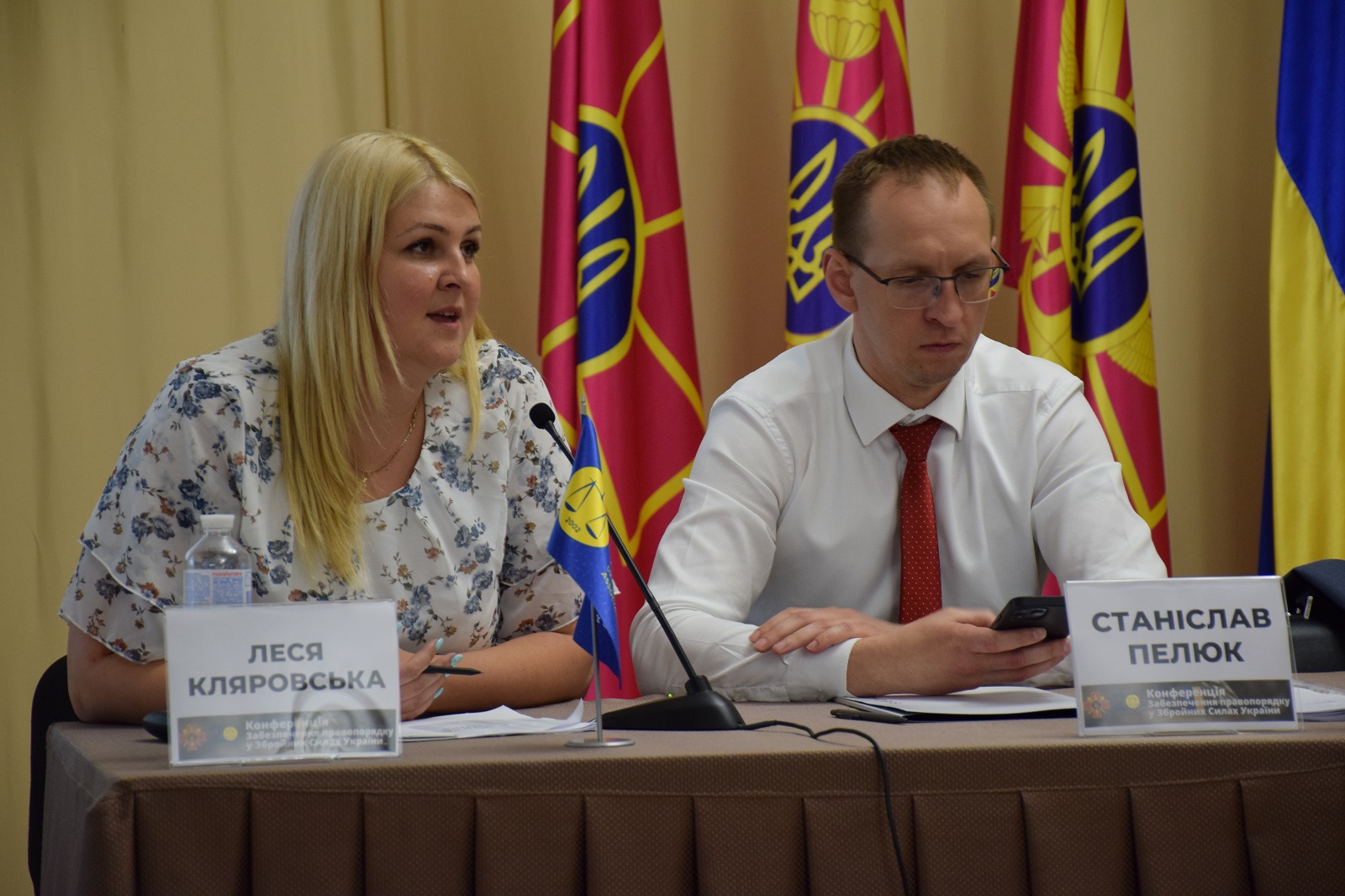
Stanislav Pelyuk, partner and head of the criminal law practice of MORIS, emphasized that in the topic of defense of military personnel now, in particular, the question of the right choice of a defense attorney is relevant, as it is fundamental when protecting a person. Separately, he raised the issue of access to state secrets, noting that access can be obtained only at the stage after the notification of suspicion.
"As for war crimes, I, as a lawyer, cannot receive information from the client. I understand that, judging by the way the interrogation is conducted and the questions asked, I am actually deprived of the opportunity to properly provide legal assistance to people," said Mr. Pelyuk.
